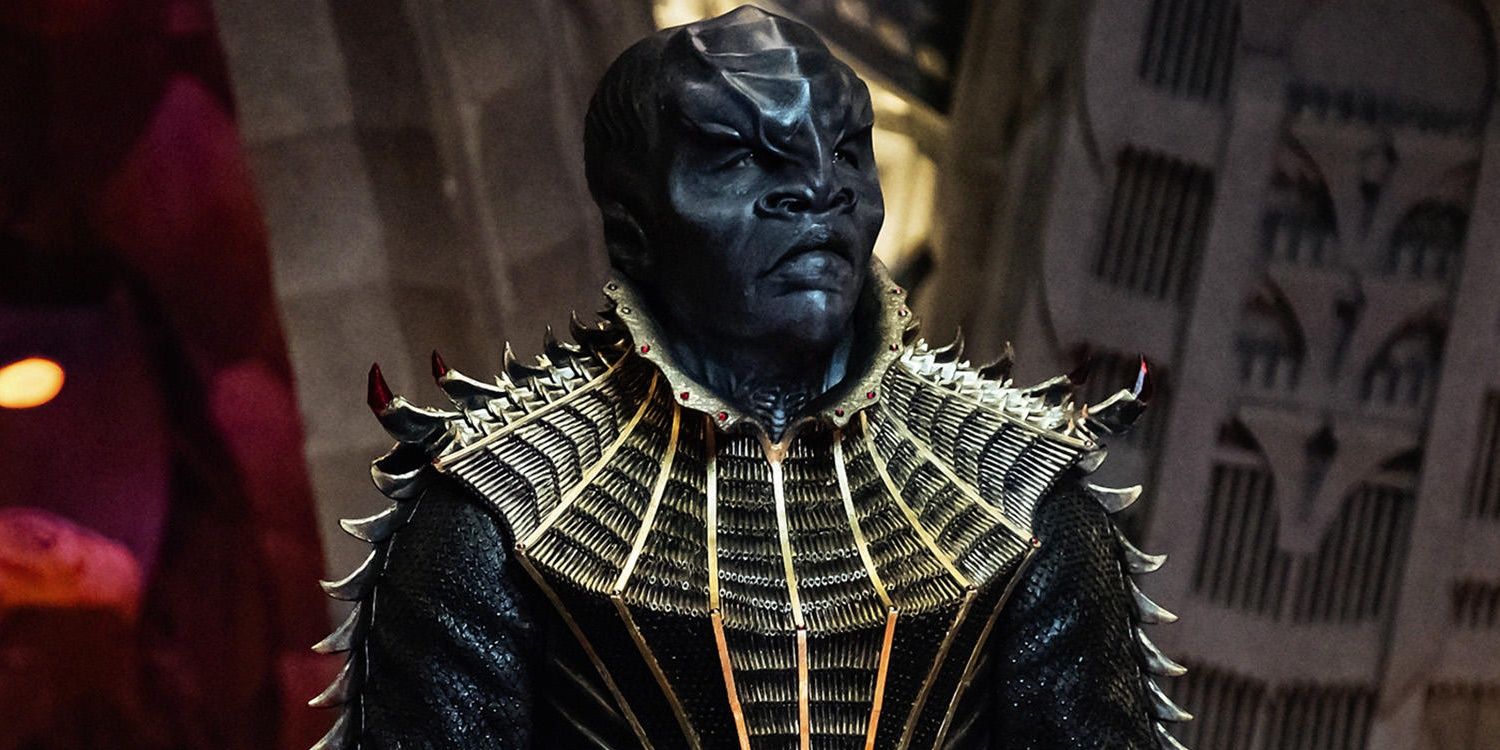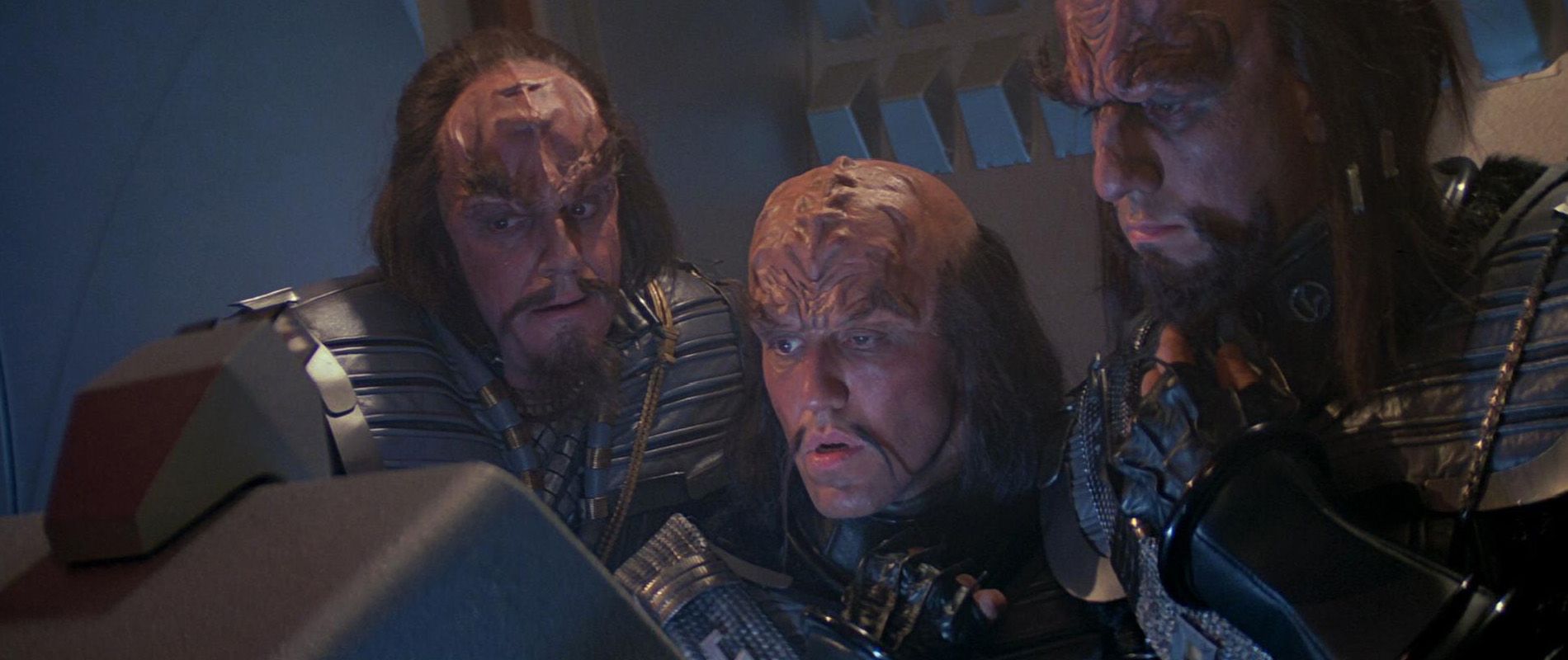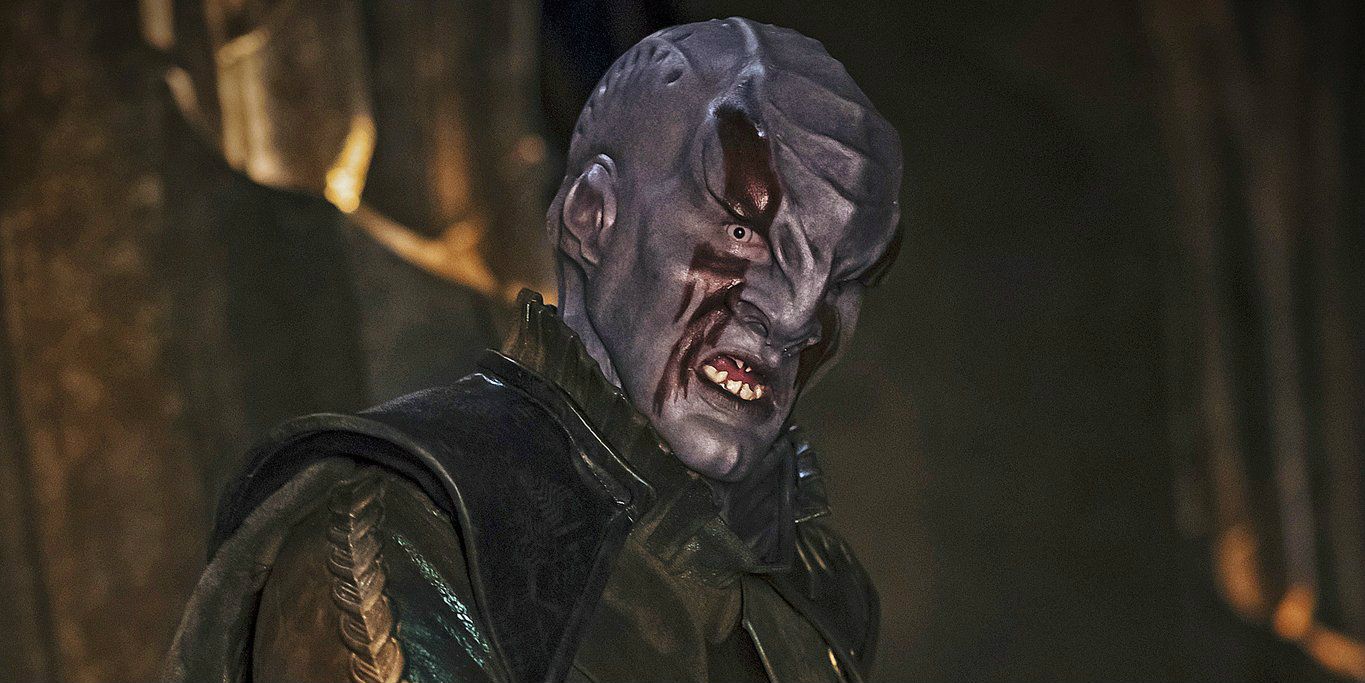Star Trek: Discovery has - against considerable odds - gotten off to a solid start. The CBS All Access series, set ten years before the adventures of Kirk and Spock, chronicles the journey of disgraced former Starfleet officer Michael Burnham (Sonequa Martin-Green), who inadvertently finds herself sparking a conflict with the Klingons that has led to a long, brutal war. The show has deftly defined its big themes with Burnham and the crew of the USS Discovery, framing the war as something of a battle for Starfleet's soul, pitting the idealistic, exploratory pursuits of Lieutenant Paul Stammets (Anthony Rapp) against the militaristic, amoral machinations of Captain Gabriel Lorca (Jason Isaacs), with Burnham caught somewhere in the middle. It's slightly darker thematic territory than Star Trek usually pursues, but it's not without precedent, and has great dramatic potential.
But while the crew of the titular Federation starship is coming together nicely, the same can't be said for Star Trek: Discovery's antagonists, the Klingons. To put it mildly, their portrayal in Discovery has been divisive.
One of the most celebrated alien species in all of science fiction, the Klingons originated in the earliest days of the original series. Those Klingons appeared more or less human, though with some unfortunate blackface makeup. They were allegorical stand ins for the Soviet Union at the height of the Cold War in the 1960s; a highly intelligent, deeply untrustworthy race that stood in fundamental opposition to everything Starfleet stood for.
The Klingons would be massively overhauled when Star Trek made the jump to film in 1979's Star Trek: The Motion Picture, featuring the now iconic forehead ridges, leather attire, and barking, guttural language. This would become the default version for the race, most famously encapsulated in the guise of Star Trek: The Next Generation's Lieutenant Worf, played with barely restrained rage by the great Michael Dorn. TNG and Star Trek: Deep Space Nine would massively expand the mythos of the Klingons, establishing them as an aggressive, viking-like warrior race that lived for battle and honor. Star Trek: Enterprise would even explain the original series' decidedly different Klingons as the victims of an augment virus, essentially a single generation whose appearance and temperament were fundamentally altered.
So far, some fans feel Discovery has failed the Klingons on several fronts. The first, and perhaps most controversial, issue has been the radical physical overhaul of the species. The forehead ridges and sharpened teeth have been abandoned in favor of something much more alien; Discovery's Klingons are hairless, monstrous looking creatures, with inky black and purple skin. The traditional Klingon armor has been jettisoned in favor of elaborate, colorful clothing that looks like it would be much more at home in a Star Wars movie than a Star Trek television show. The producers have justified these changes by noting the series' prior visual overhaul of the Klingons, but that change has a justifiable - if overly complicated - explanation. There seems no way to reconcile the appearance of Discovery's Klingons with what came before and after this point in the franchise's timeline.
Unfortunately, the surface level change in appearance is the least of the issues with these Klingons. The Klingons have often been shown to be a religious people - the oft mentioned Kahless is essentially the Klingon version of Jesus - but this particular brand of religious fanaticism is something new, and decidedly out of step with what we know about the Klingons. They're portrayed as an unsophisticated, even animalistic race here - the scene between Voq and L'Rell where they discuss eating the corpse of Captain Georgiou was eye opening, to say the least. They're obsessed with their faith and racial purity to the point of parody. Why the Klingon empire would go to war with the Federation on the basis of the martyrdom of one particularly whacko zealot, T'Kuvma, is never really fully explained, and it makes the Klingons seem like two dimensional cartoon villains, which is a level of thematic laziness Star Trek has always strived to avoid. Star Trek's villains have always had very clear motivations, often even sympathetic ones, but it's difficult in any way to figure out what to make of Discovery's Klingons.
The producers of the show took another big risk in their portrayal of the Klingons. Unless they're speaking directly to humans, the Klingons in Discovery all speak in subtitled Klingon. That's a cool, admirably realistic notion that Star Trek and many other science fiction series tend to side step in favor of narrative clarity. It turns out those other shows knew what they were doing; every scene that features a room full of Klingons stiffly spitting the alien language at each other through their gigantic prosthetic teeth results in the show screeching to a halt. It is not easy for actors buried in that much makeup and prosthetics while speaking a made up language to give compelling performances, though the performers do their best.
Perhaps the least effective aspect of the series so far is the notion of attaching real world 2017 issues of racism and nationalism onto the Klingons. There is, of course, plenty of precedent for the Klingons to serve as allegories for real world social issues. Star Trek VI: The Undiscovered Country did a beautiful job of exploiting their roots as Russian analogs to tell a smart, morally complicated story that reflected the real world end of the Cold War, and The Next Generation and Deep Space Nine similarly explored stories about integrating lifelong enemies into post-war alliances. The racial purity angle of Discovery's Klingons not only has little precedent in the franchise's past, it is, to this point, just not very well executed. It makes the already thinly drawn characters all the more off putting, an enemy who are nearly impossible to empathize with on any level.
Most of these issues, on their own, would not be fatal. But the sheer breadth of problems endured by Discovery's Klingons so early in the show's run has made their potential longterm success a severe uphill battle. The show has, admittedly, been spending most of its time with Burnham, as she readjusts to her life as an infamous mutineer on the Discovery. But the show is simply not going to work if the Klingons remain such faceless, charmless antagonists. Discovery needs to remember what made the Klingons so beloved to start with, and find a way to make them as compelling as our Starfleet heroes, or this may end up becoming a hollow venture.



